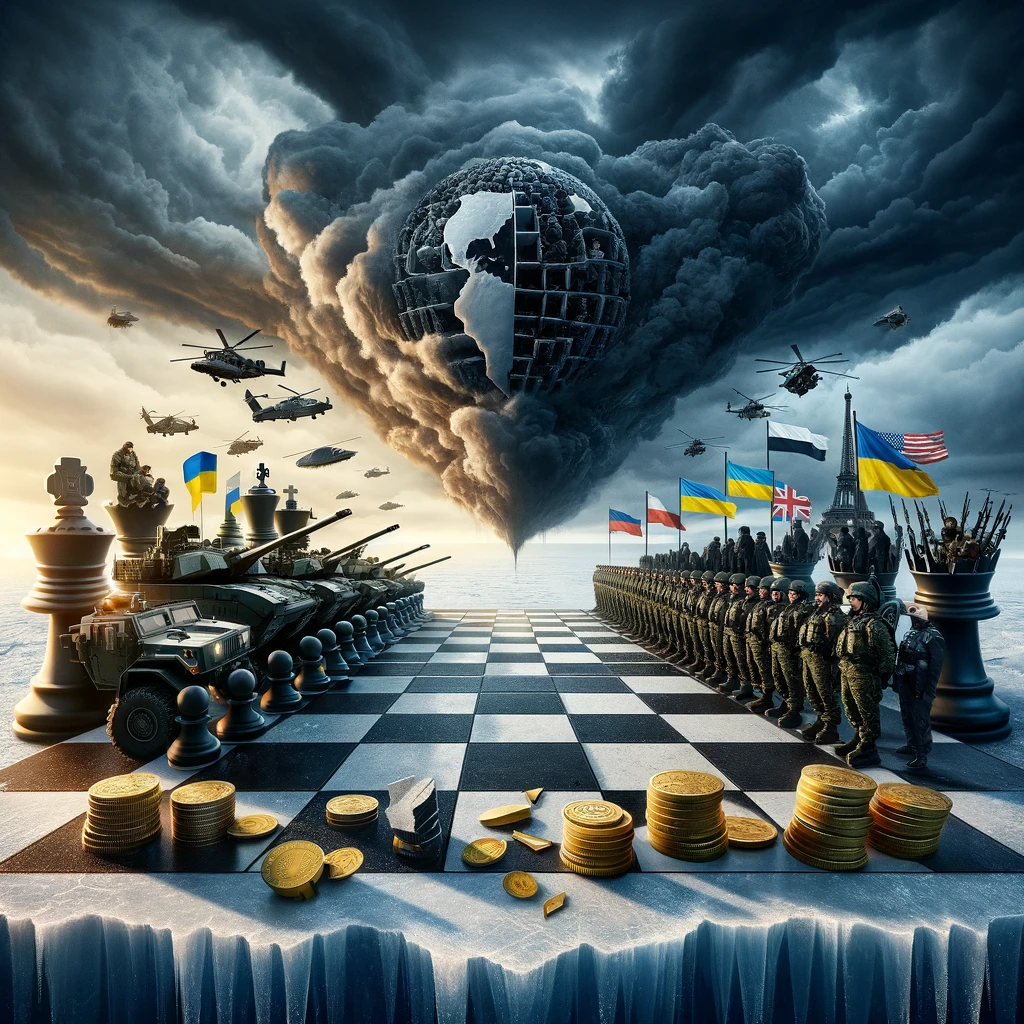
The recent intensification of military cooperation between the United States, Europe and Ukraine have been a topic of heated debate on the international stage. This collaboration, despite aiming to strengthen Ukraine in the face of external threats, carries significant risks, could lead to an escalation of conflict in the region. Besides that, the lack of an aligned strategy between the countries involved adds a layer of complexity and uncertainty to the situation.
One of the main arguments against such intensive cooperation is the danger of conflict escalation.. Military actions, when they are not completely coordinated or are perceived as provocations, can lead to aggressive responses from other nations, especially from Russia, which sees the approach of NATO and the West to Ukraine as a direct threat to its security interests. International security experts warn that, without a cautious approach, military support could provoke a spiral of tensions that goes beyond Ukraine's borders, affecting global stability.
In addition to the risk of escalation, There is evidence that the cooperation strategy is not uniform among Western countries. The recent leak of conversations between German officials has revealed significant divergences in the approaches of European Union members. The Germany, for example, has been criticized for its hesitancy to provide robust military aid, reflecting a caution that contrasts with the more assertive stance of the United States and France. This lack of strategic cohesion could undermine the effectiveness of support provided to Ukraine, in addition to sending ambiguous messages to opponents, reducing the diplomatic and military pressure necessary to resolve the conflict.
Another worrying dimension is the reaction of public opinion and the media in different countries. Analysis from international news outlets indicates growing skepticism about the sustainability and long-term consequences of military cooperation with Ukraine. The concern is not just with the immediate financial and human costs, but also with the prolonged strategic ramifications, including the potential for even greater division between East and West.
The question that emerges is: how the countries involved can coordinate their efforts effectively, ensuring that support for Ukraine contributes to regional peace and stability, without causing unwanted escalation? One possible approach would be to strengthen channels of dialogue and transparency between Western allies, ensuring that all actions are carefully calibrated and aligned with a comprehensive diplomatic strategy. Besides that, it is crucial that military aid is accompanied by renewed efforts for a diplomatic solution, involving all parties interested in the conflict.
Support for Ukraine in its defense against external aggression is a sovereign right and an expression of international solidarity. However, This support must be provided with prudence and strategy, aiming at the longevity of peace and security in the region. Military collaboration without a cohesive and cautious strategy not only fails to secure long-term objectives, but it can also precipitate an escalation that no one wants. The moment demands not only solidarity, but also strategic and diplomatic wisdom.
